

| Cruise Region : Mediterranean Sea, Europe |
| Company : Costa Cruises |
| Ship : Costa Fascinosa |
| Journey Start : Sun 02 Nov 2025 |
| Journey End : Fri 07 Nov 2025 |
| Count Nights : 5 nights |
| Day | Date | Port | Arrival | Departure |
|---|---|---|---|---|
| 1 | 2.11 Sun | Marseille / France | 19:00 | |
| 2 | 3.11 Mon | Day at sea / Sea | ||
| 3 | 4.11 Tue | Naples / Italy | 07:00 | 16:00 |
| 4 | 5.11 Wed | Livorno / Italy | 10:00 | 20:00 |
| 5 | 6.11 Thu | Savona / Italy | 09:00 | 16:30 |
| 6 | 7.11 Fri | Marseille / France | 09:00 |
Accommodation in a cabin of the selected category
Meals in the restaurant (buffet) on the "buffet" system, including breakfast, lunch and dinner, as well as snacks in the cafe and pizzeria throughout the day. Water, juices, tea, coffee from machines are available in the buffet free of charge 24 hours.
Meals in the main restaurant "a la carte". As a rule, all liners have two or three main restaurants with menu service. The dishes in such restaurants are more refined and varied than in the buffet. Drinks are ordered for an additional fee.
Entertainment on board, such as animation, master classes, aerobics, evening performances in the theatre, live music in bars, discos.
Access to all public areas of the liner: fitness center (gym), swimming pools, jacuzzis by the pools, water park, library, mini-clubs for children.
Services of educators in mini-clubs for children from 6 months to 17 years
Games on sports grounds, including tennis, mini-football, basketball, badminton, mini-golf and others.
Use of watercraft during embarkation or disembarkation in ports if the liner does not enter the port.
Luggage transportation at the beginning and end of the cruise.
Service charge, of 12 euros per night per guest.
Depending on the cabin category, you may be provided with additional services free of charge. For example, ALL INCLUSIVE drinks in bars and restaurants, cabin service with free delivery 24 hours, use of the spa center.
Important: MSC reserves the right to change the cabin to the same category or higher. However, MSC will do everything possible to avoid changing the cabin.
Additional costs:
insurance (medical insurance, travel cancellation insurance)
airfare, rail transport (transportation costs to the port of departure and from the port of arrival of the ship)
transfers (from the airport/train station to the sea port and back)
excursions
pre- and post-cruise hotel reservations if you want to extend your holiday on land.
Additionally paid on the liner:
visiting alternative bars and restaurants
services of spa centers, hairdressers, beauty salons
medical services
laundry, ironing
casino
slot machines, etc. depending on the specific liner.
For any purchase of goods on the liner in bars, restaurants, shops and services in the spa center, hairdresser, etc. you will be additionally charged a service fee, which will average 15% of the purchase price.
Costa Cruises Fare Plans
Costa offers three fare options, allowing every guest to choose the right level of comfort and included services:
My Cruise — Basic Fare (Currently, only the My Cruise is available for booking on the website.
Other fare options (All-Inclusive and Super All-Inclusive) are available upon individual request through your travel agent.
Ideal for travelers who value flexibility and want to select only the services they need.
What’s included:
Accommodation in the chosen cabin
Full board: breakfast, lunch, dinner, and snacks
Costa Club points accumulation
All-Inclusive — Everything Included
A comfortable fare that includes the My Drinks package. Perfect for those who want to know all their expenses in advance.
What’s included:
Accommodation in the chosen cabin
Full board: breakfast, lunch, dinner, and snacks
My Drinks package: unlimited beverages by the glass — wine, beer, whiskey, cocktails, hot drinks, juices, and soft drinks
1 bottle of 0.5L water per day per person
Choice of dinner time
Costa Club points + discount on the next cruise
If your client chooses a Suite, the following are also included:
My Drinks Plus package (includes premium beverages and minibar)
24/7 personal butler service
Super All-Inclusive — Maximum Comfort
The most complete fare including drinks, meals, and multilingual guided excursions.
What’s included:
Accommodation in the chosen cabin
Full board: breakfast, lunch, dinner, and snacks
My Drinks package: a wide selection of alcoholic and non-alcoholic beverages
1 bottle of 0.5L water per day per person
My Explorations package: a set of excursions + discounts on additional tours
Flexible cancellation terms
Choice of dinner time
Costa Club points + discount on the next cruise
If your client chooses a Suite, the following are also included:
My Drinks Plus package (includes premium beverages and minibar)
24/7 personal butler service
Costa Cruises Beverage Packages
Choose the Best Package
My Soft Drinks
Enjoy coffee, juices, soft drinks, and alcohol-free cocktails.
Included:
Non-Alcoholic Drinks at the Bar: Soda, juices (various flavors), tonic, lemonade, iced tea, syrup with water per glass, mineral water (still or sparkling).
Hot Drinks: Espresso, decaffeinated coffee, iced coffee, coffee shaker, cappuccino, coffee with liqueur, selection of teas and herbal infusions.
From Chocolate Bar (if available on the ship): Hot or cold chocolate (various flavors).
Alcohol-Free Cocktails: All from the onboard menu.
Not Included: Cocktails, premium drinks, minibar drinks.
My Drinks
If you want more, add a wide selection of cocktails.
Included:
Drinks with Meals.
Drinks at the Bar.
Cocktails.
Aperitifs and Vermouths: All from the onboard menu.
Beer: Draft beer, non-alcoholic beer.
Non-Alcoholic Drinks and Mineral Water: Soda, juices (various flavors), tonic, lemonade, iced tea, syrup with water per glass, mineral water (still or sparkling), one 0.5L bottle of mineral water per adult per day in the restaurant and all bars.
Hot Drinks: Espresso, decaffeinated coffee, iced coffee, coffee shaker, cappuccino, coffee with liqueur, selection of teas and herbal infusions.
From Chocolate Bar (if available): Hot or cold chocolate (various flavors).
Wines by the Glass: White wines (Pinot Grigio, Chardonnay, Trebbiano); red wines (Merlot, Cabernet, Nero d’Avola); rosé wines (Rosato Puglia).
Whiskies: Ballantines, J&B, Johnnie Walker Red, Jim Beam, Canadian Club, Jameson, Dewar’s White Label, Crown Royal.
Other Distillates: Grappa (Grappa Moscato, Sènjana Gentile); cognac (Cognac VS); gin (Beefeater, Gordon’s); vodka (Skyy, Stolichnaya); rum (Bacardi Silver, Bacardi Gold, Bacardi Limón); brandy (Vecchia Romagna E.N., Fundador); tequila (Jose Cuervo).
Liqueur Wines: Harveys Bristol Cream, Sandeman Ruby Port.
Bitters and Liqueurs: All from the onboard menu.
Bacardi Breezer: All from the onboard menu.
Cocktails: Whisky Cream Banana Colada, Piña Colada, Kiwi Colada, Strawberry Daiquiri, Banana Daiquiri, Planter’s Punch, Mai Tai, Bahama Mama, Frozen Margarita, Mojito, Caipirinha, Caipiroska, Caipirissima, Sidecar, Between the Sheets, Martini, Negroni, Americano, Campari shakerato, Aperol Spritz, Black Russian, White Russian, Pink Lady, Rossini, Bellini, Costa Dream, Costa Sea, Costa Wind, Costa Sky, Ginger Mojito, Mango Caipirinha.
Alcohol-Free Cocktails: Colibrì, Fruit Punch, Pink Panther, Squok, Cosmopolitan Long Virgin, Mojito Zero, Strawberry Caipiroska Zero, Sex on the Beach Zero, Passion Fruit Caipiroska Zero.
Mixed Drinks: Gin and tonic, vodka and tonic, whisky with cola, vodka with lemon, Cuba Libre.
Not Included: Premium drinks, minibar drinks.
My Drinks Plus
If you want the ultimate experience, add prestigious labels, plus soft drinks, bottled water and beer, and all minibar drinks.
Included:
Drinks with Meals.
Drinks at the Bar.
Cocktails.
Premium Drinks.
Drinks from the Minibar.
Unlimited consumption of all drinks from the bar menu up to 9 euros/10 dollars.
Molecular cocktails, solid cocktails, and premium drinks.
Assortment of beers, aperitifs, and distillates.
Special coffees for sweet lovers.
Drinks from the minibar or served in the cabin, plus the finest labels, bottled water, and beer.
My Drinks Young (for Children)
A wide selection of drinks per glass: from soda to smoothies and chocolate.
Included:
Juices: Pear, peach, apricot, pineapple, orange, grapefruit.
Non-Alcoholic Drinks and Mineral Water: Soda, juices (various flavors), tonic, lemonade, iced tea, syrup with water per glass, mineral water (still or sparkling).
Alcohol-Free Cocktails: Colibrì, Fruit Punch, Pink Panther, Squok, Cosmopolitan Long Virgin, Mojito Zero, Strawberry Caipiroska Zero, Sex on the Beach Zero, Passion Fruit Caipiroska Zero.
Hot Drinks: Espresso, decaffeinated coffee, iced coffee, coffee shaker, cappuccino, selection of teas and herbal infusions.
From Chocolate Bar (if available): Hot or cold chocolate (various flavors).
*Available only for children aged 4 to 17. Free for children under 4. **Cocktails available only in combination with the My Drinks package.
Beverage Package Conditions
Beverage packages are personal, non-transferable, and cannot be shared. They must be purchased by all guests in the same cabin or with the same booking number and/or traveling together. Packages including alcoholic drinks are intended only for guests aged 18+ (21 in the USA). They include a selection of alcoholic and non-alcoholic drinks served by the glass. Whole bottles of wine or spirits are not served. Excluded are minibar products, in-cabin service, and prestigious brands (except for My Drinks Plus). Service will be denied to intoxicated guests. If guests abuse the beverage package by sharing it with those who haven’t purchased it, Costa will revoke the privilege. Beverage packages are valid on embarkation and disembarkation days. My Drinks Young: Available only in combination with another adult beverage package. Intended for children and teens aged 4 to 17. Free for children under 4. Includes a selection of non-alcoholic drinks per glass. Excluded are minibar products and in-cabin service (except in combination with My Drinks Plus).
To confirm your booking, a minimum deposit of 30% of the cruise fare is required.
The final payment must be made no later than 60 days before the cruise departure.
After the deposit or full payment is received (depending on the booking date), you will receive confirmation.
Boarding passes are sent 14 days before departure upon completion of online check-in.
Payment methods:
By invoice
By credit/debit card
Cancellation Penalties
Rates MyCruise, All Inclusive, Super All Inclusive:
60 days or more before the cruise – €100 per person retained
59–40 days before the cruise – 30% of the total cost
39–25 days before the cruise – 55% of the total cost
24–16 days before the cruise – 80% of the total cost
15 days or less before the cruise – 100% of the total cost
Last Minute Rate:
100% of the total cruise cost charged from the moment of booking
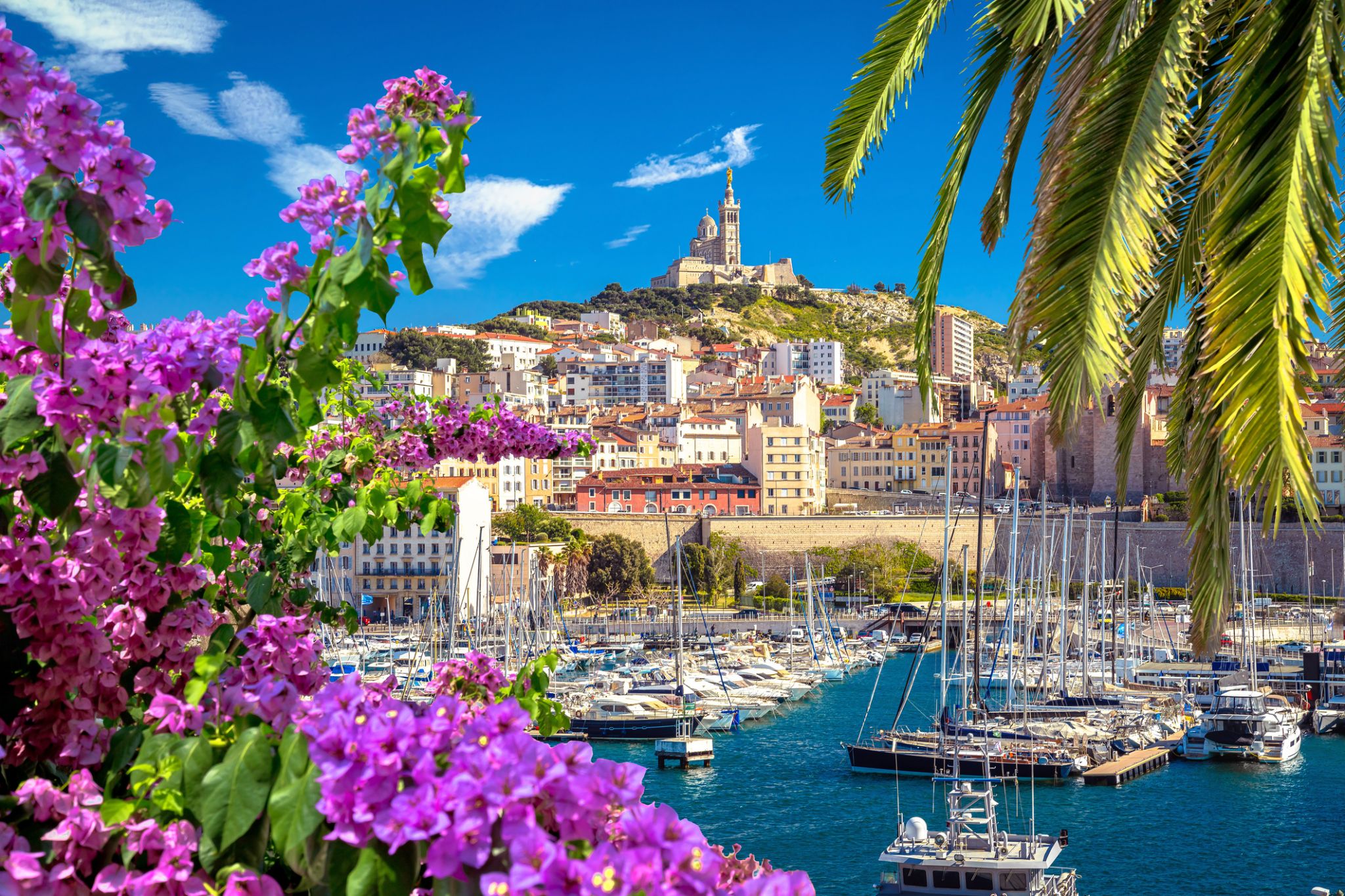
Marseille is the second-largest city of France. The main city of the historical province of Provence, it nowadays is the prefecture of the department of Bouches-du-Rhône and region of Provence-Alpes-Côte d'Azur. It is located on France's south coast near the mouth of the Rhône river. The city covers an area of 241 km2 (93 sq mi) and had a population of 852,516 in 2012. Its metropolitan area, which extends over 3,173 km2 (1,225 sq mi) is the third-largest in France after Paris and Lyon, with a population of 1,831,500 as of 2010.
Known to the ancient Greeks and Romans as Massalia, Marseille was an important European trading centre and remains the main commercial port of the French Republic. Marseille is now France's largest city on the Mediterranean coast and the largest port for commerce, freight and cruise ships. The city was European Capital of Culture in 2013 and European Capital of Sport in 2017; it hosted matches at the 1998 World Cup and Euro 2016. It is home to Aix-Marseille University.
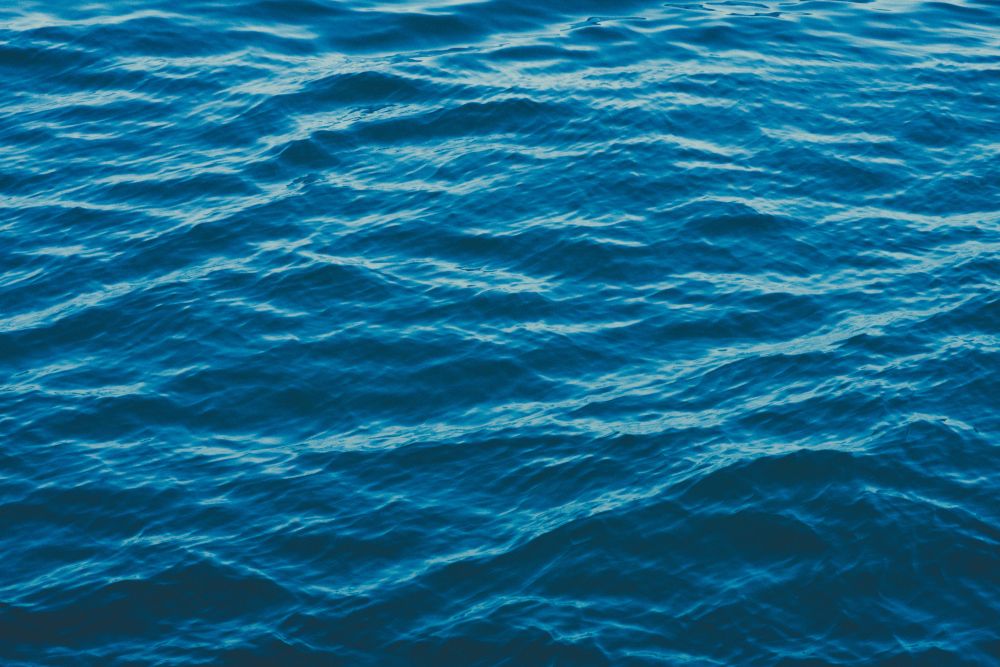
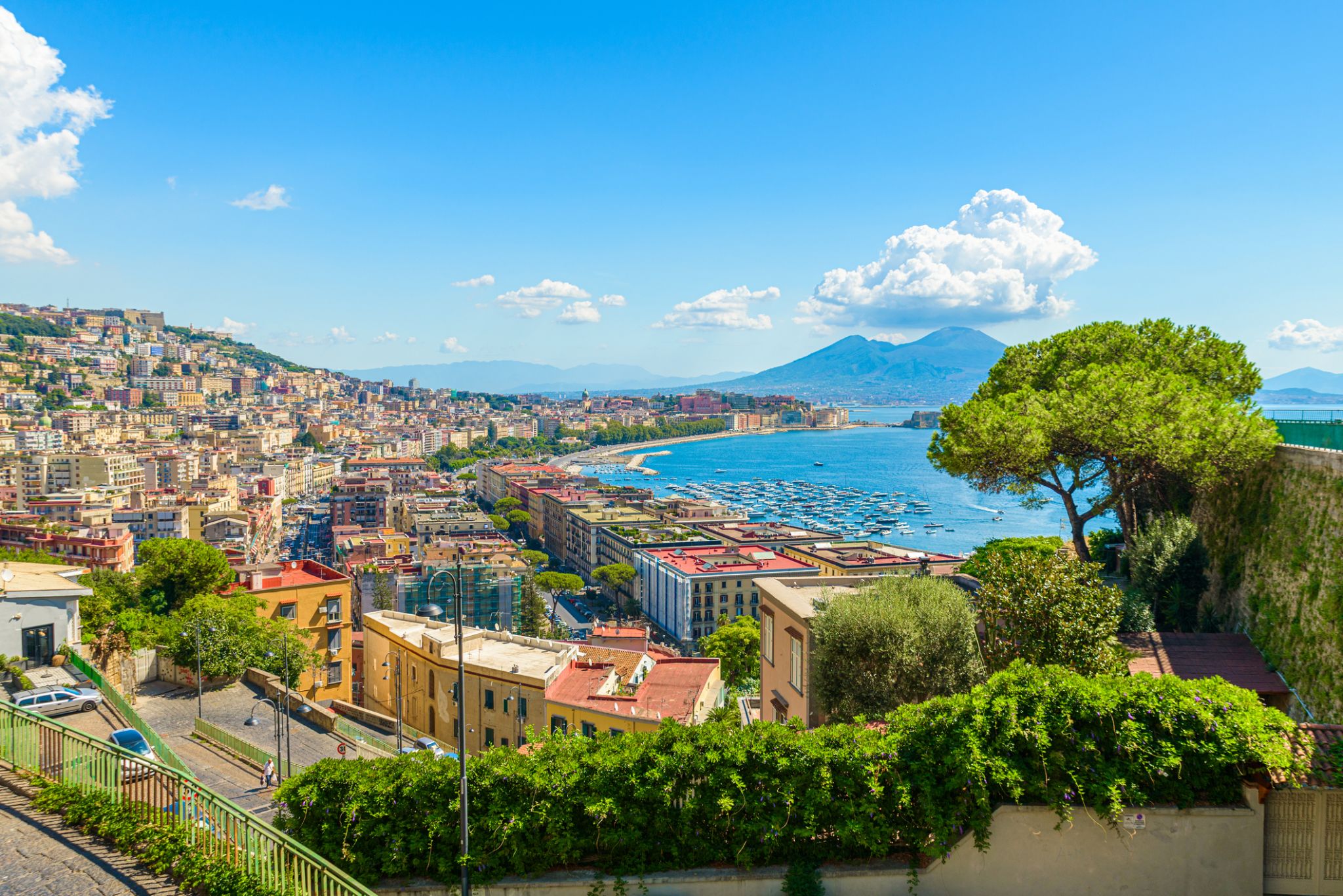
Naples is the regional capital of Campania and the third-largest municipality in Italyafter Rome and Milan. In 2017, around 967,069 people lived within the city's administrative limits while its province-level municipality has a population of 3,115,320 residents. Its continuously built-up metropolitan area (that stretches beyond the boundaries of the Metropolitan City of Naples) is the second or third largest metropolitan area in Italy and one of the most densely populated cities in Europe.
First settled by Greeks in the second millennium BC, Naples is one of the oldest continuously inhabited urban areas in the world. In the ninth century BC, a colony known as Parthenope or Παρθενόπη was established on the Island of Megaride, later refounded as Neápolis in the sixth century BC. The city was an important part of Magna Graecia, played a major role in the merging of Greek and Roman society and a significant cultural centre under the Romans. It served as the capital of the Duchy of Naples (661–1139), then of the Kingdom of Naples (1282–1816) and finally of the Two Sicilies until the unification of Italy in 1861.
Between 1925 and 1936, Naples was expanded and upgraded by Benito Mussolini's government but subsequently sustained severe damage from Allied bombing during World War II, which led to extensive post-1945 reconstruction work. Naples has experienced significant economic growth in recent decades, helped by the construction of the Centro Direzionale business district and an advanced transportation network, which includes the Alta Velocità high-speed rail link to Rome and Salerno and an expanded subway network. Naples is the third-largest urban economy in Italy, after Milan and Rome. The Port of Naples is one of the most important in Europe and home of the Allied Joint Force Command Naples, the NATO body that oversees North Africa, the Sahel and Middle East.
Naples' historic city centre is the largest in Europe and a UNESCO World Heritage Site, with a wide range of culturally and historically significant sites nearby, including the Palace of Caserta and the Roman ruins of Pompeii and Herculaneum. Naples is also known for its natural beauties such as Posillipo, Phlegraean Fields, Nisida, and Vesuvius.
Neapolitan cuisine is synonymous with pizza – which originated in the city – but it also includes many lesser-known dishes; Naples has the greatest number of accredited stars from the Michelin Guide of any Italian city.
The best-known sports team in Naples is the Serie A club S.S.C. Napoli, two-time Italian champions who play at the San Paolo Stadium in the southwest of the city, in the Fuorigrotta quarter.
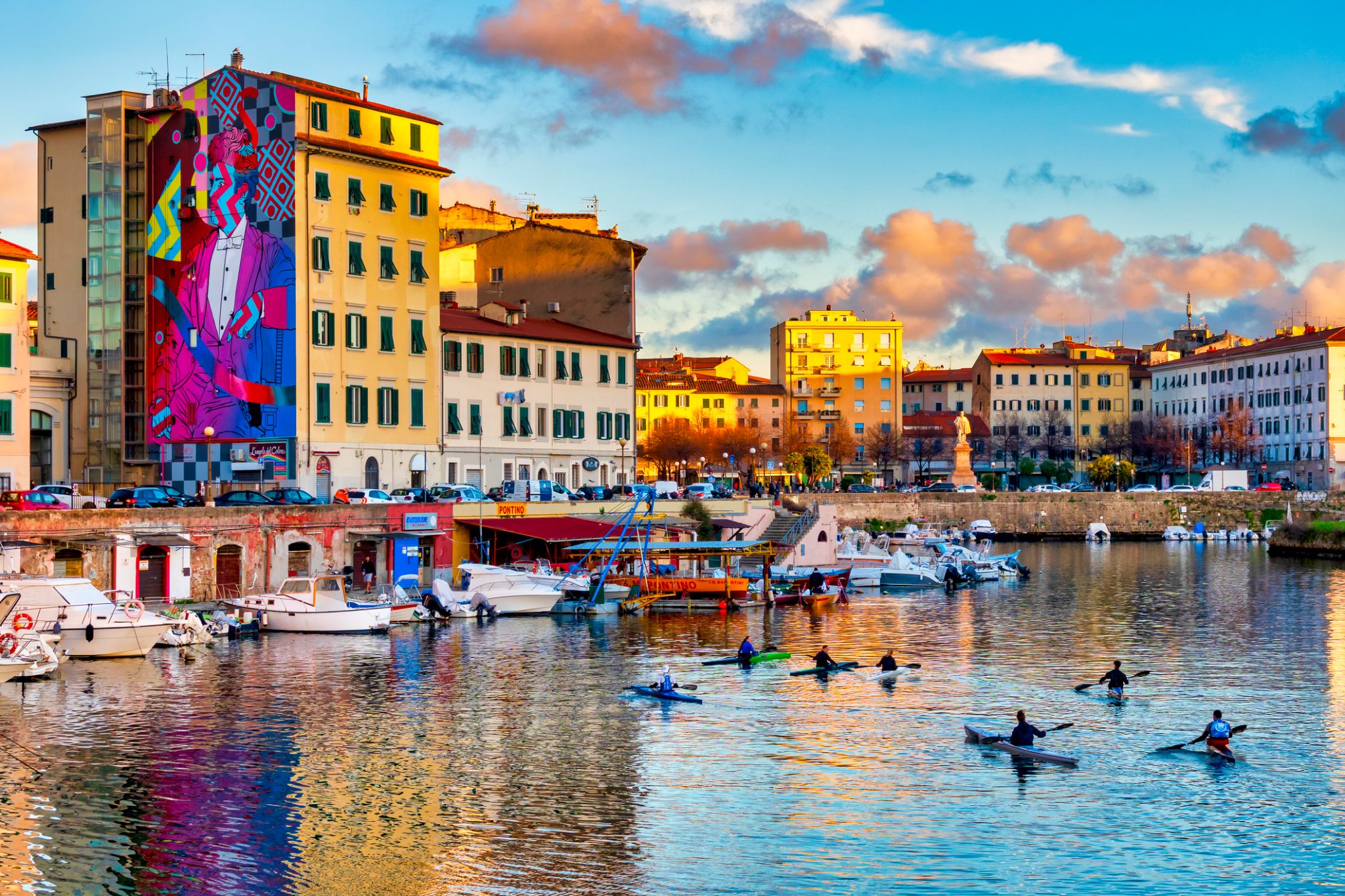
Livorno is a port city on the Ligurian Sea on the western coast of Tuscany, Italy. It is the capital of the Province of Livorno, having a population of 158,493 residents in December 2017. It has traditionally been known in English as Leghorn.
The origins of Livorno are controversial, although the place was inhabited since the Neolithic Age as shown by worked bones, pieces of copper and ceramic found on the Livorno Hills in a cave between Ardenza and Montenero. The construction of the Via Aurelia coincided with the occupation of the region by the Romans, who left traces of their presence in the toponyms and ruins of towers. The natural cove called Liburna, later transformed into Livorna, before becoming Livorno, is a reference to the type of ship, the liburna, used by Roman navy. Others ancient toponyms include: Salviano (Salvius), Antignano (Ante ignem) which was the place situated before Ardenza (Ardentia) where were the beacons for the ships directed to Porto Pisano.
The name Livorna is mentioned for the first time in 1017 as a small coastal village, the port and the remains of a Roman tower. In 1077, a tower was built by Matilda of Tuscany. The Republic of Pisa owned Livorno from 1103 and built a quadrangular Fort called Quadratura dei Pisani ("Quarter of the Pisans") to defend the port. Porto Pisano was destroyed after the crushing defeat of the Pisan fleet in the Battle of Meloria in 1284. In 1399, Pisa sold Livorno to the Visconti of Milan, in 1405 it was sold to the Republic of Genoa and on 28 August 1421 it was bought by the Republic of Florence.
Between 1427 and 1429, a census counted 118 families in Livorno, including 423 persons. Monks, Jews, military personnel, and the homeless were not included in the census. The only remainder of medieval Livorno is a fragment of two towers and a wall, located inside the Fortezza Vecchia.
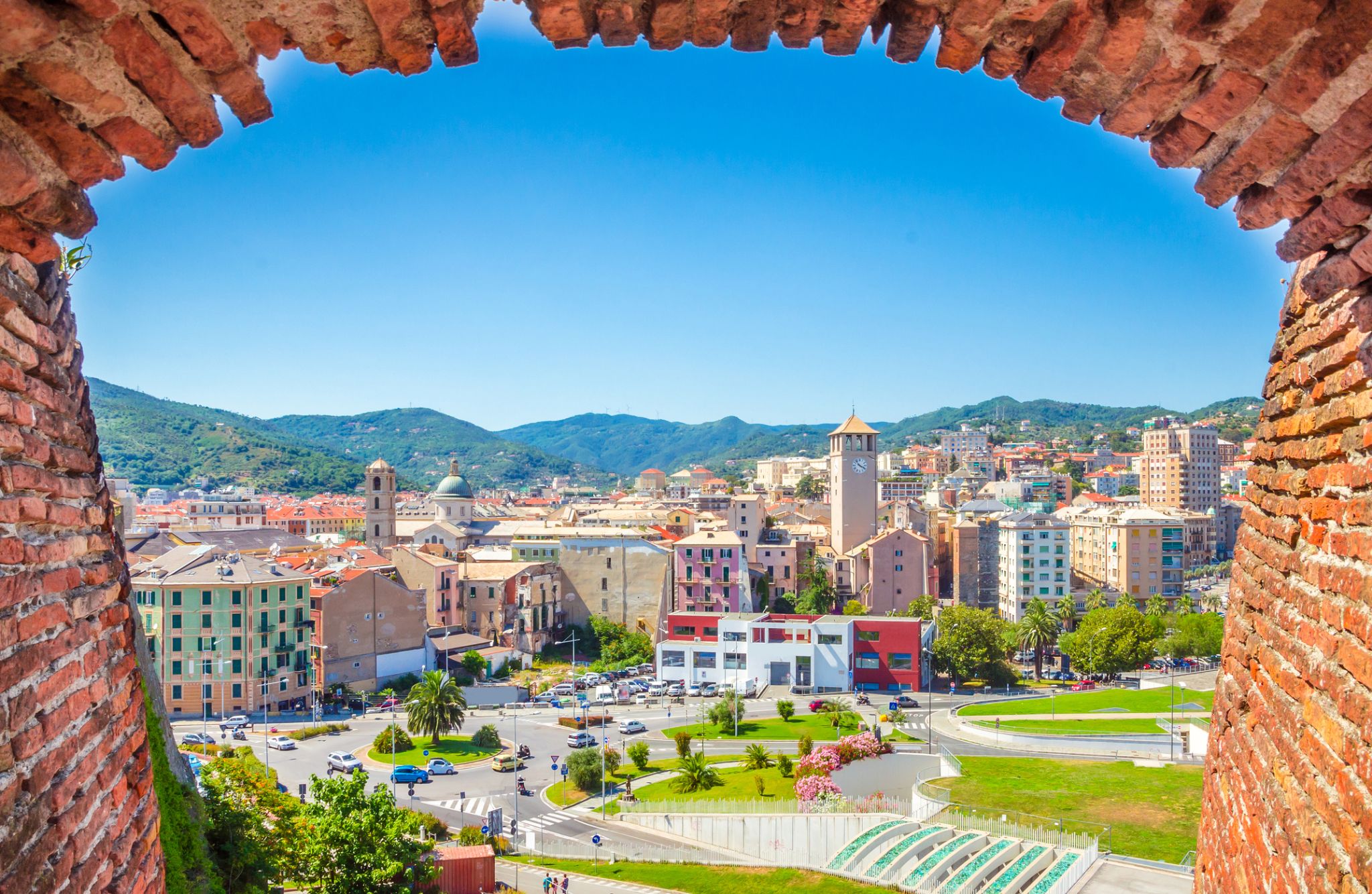

Marseille is the second-largest city of France. The main city of the historical province of Provence, it nowadays is the prefecture of the department of Bouches-du-Rhône and region of Provence-Alpes-Côte d'Azur. It is located on France's south coast near the mouth of the Rhône river. The city covers an area of 241 km2 (93 sq mi) and had a population of 852,516 in 2012. Its metropolitan area, which extends over 3,173 km2 (1,225 sq mi) is the third-largest in France after Paris and Lyon, with a population of 1,831,500 as of 2010.
Known to the ancient Greeks and Romans as Massalia, Marseille was an important European trading centre and remains the main commercial port of the French Republic. Marseille is now France's largest city on the Mediterranean coast and the largest port for commerce, freight and cruise ships. The city was European Capital of Culture in 2013 and European Capital of Sport in 2017; it hosted matches at the 1998 World Cup and Euro 2016. It is home to Aix-Marseille University.